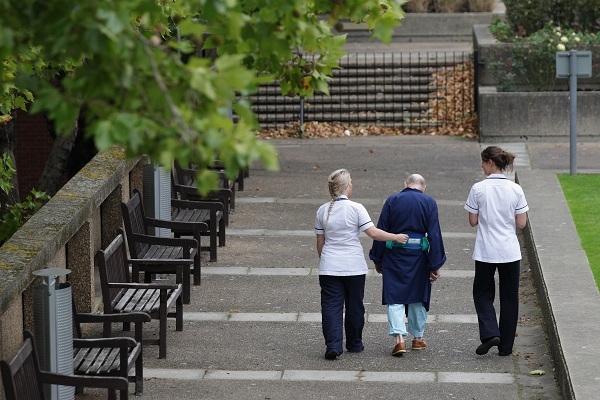Some generalisations hold good. Young people, for instance, tend to be less hostile to immigration than their elders. This speaks well of their decency but also, as today’s report form the Office of Budgetary Responsibility makes clear, to an intuitive sense of their own self-interest.
If there’s one thing today’s Fiscal Sustainability Report makes clear, it is that the under-40s are going to need some help if Britain’s ageing population isn’t going to cripple the country. Of course, the standard caveats need to be applied: the OBR makes projections and projections are vulnerable to events. The purpose of these reports is to help provide a context within which policy can be debated. Policy choices will have an impact on future projections. Nevertheless…
The central fact is this: at present 17 per cent of the UK population is aged 65 or more but by 2061 that figure is projected to be approximately 26 per cent. That’s a hell of a shift and the kind of demographic reality that could, probably should, drive policy. What are we going to do with all these oldies? How are we going to pay for them? Will workers not yet born be able to provide for themselves as well as their ancient compatriots?
Of course, as the OBR notes, the problems of an ageing population and the pressure to keep increasing expenditure on health care are common to all developed, industrial societies. That’s a large part of the argument about President Obama’s healthcare reforms. But at least the US has an eye on the long-term future; that aspect of the discussion is rarely heard in the UK. It’s about time it was.
So the people who say the UK is soon likely to suffer from a population crisis have it precisely wrong. They fear too many people are going to try and live on these islands. The truth is different: we’re going to need more people, if only to help spread the burden of paying for the old.
Perhaps productivity will increase. Perhaps healthcare will cease to become more and more expensive. Let us hope so. I wouldn’t want to base policy-making on either of those propositions, however. As Tyler Cowen often says, it seems quite possible that much, even most, of the low-hanging economic fruit has already been picked.
The difference, according to the OBR, between an environment of what they term “high migration” and one of “zero net migration” is pretty stark. Under the latter scenario economic growth is between 0.6 per cent and 0.8 per cent lower for each and every one of the next 30 years. Cumulatively that is one hell of a difference.
Of course, again, these are only forecasts and are indicative, not certain. Nevertheless, if you want to cap the UK’s population at some arbitrary level or if you want to eliminate immigration you might at least acknowledge that there are consequences to these choices. And that one of them is making your children and grand-children support more pensioners than they need or would have to if you allowed more foreigners to share that burden.I don’t suppose immigration restrictionists and population controllers really hate their descendants; they just favour policies that are bad for their kids.







Comments